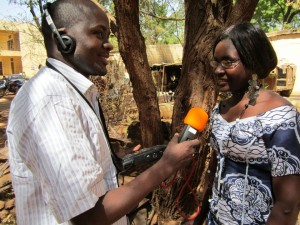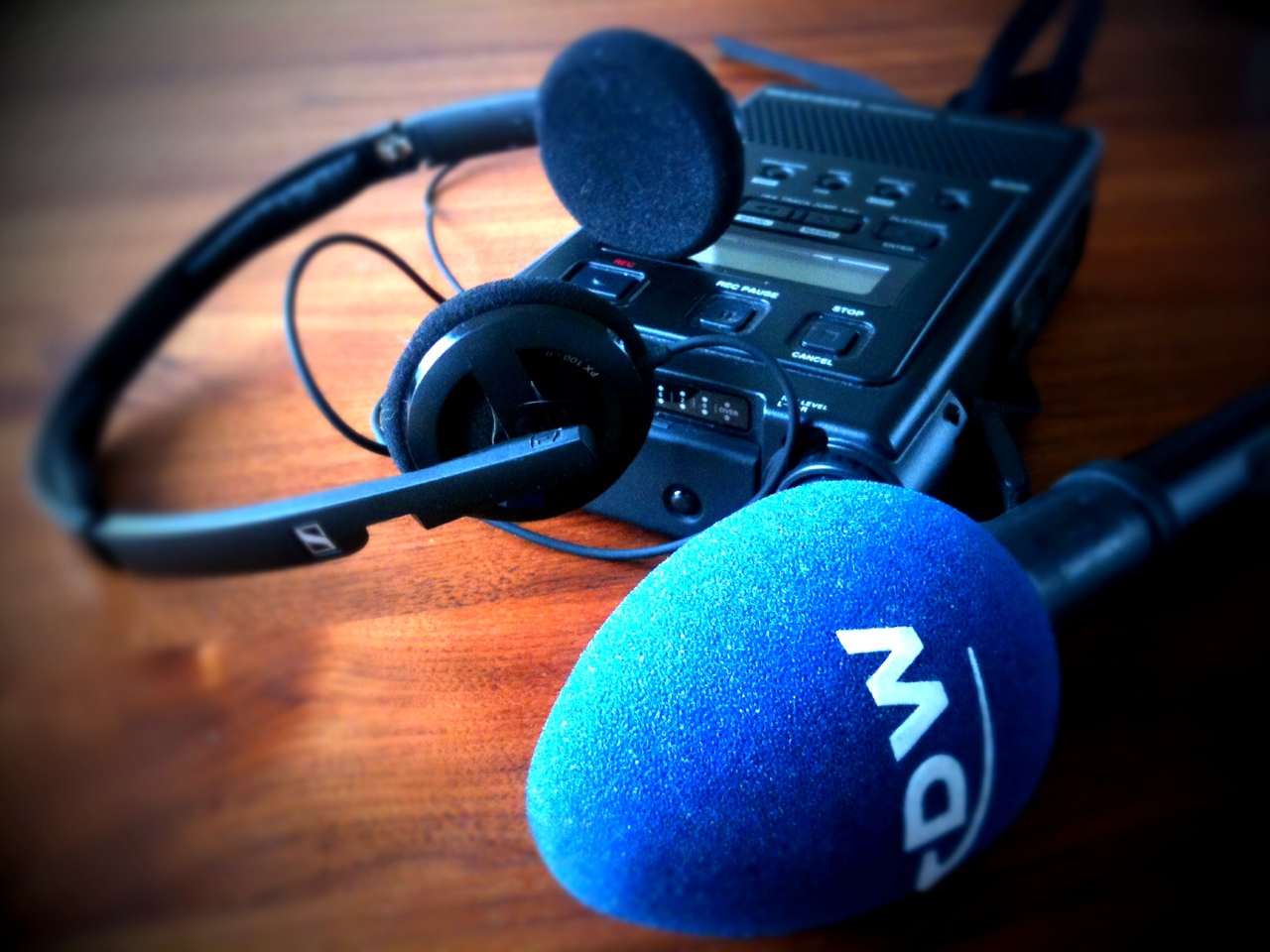Vox Pop: What’s good and bad about this journalistic format?
 Radio and TV programs are not an end in themselves – journalists don’t produce them for their own self-fulfillment, but to meet the needs of their audience. Journalists write news bulletins and reports to meet the audience’s information needs and they produce music programs to entertain their audience.
Radio and TV programs are not an end in themselves – journalists don’t produce them for their own self-fulfillment, but to meet the needs of their audience. Journalists write news bulletins and reports to meet the audience’s information needs and they produce music programs to entertain their audience.
All of these journalistic formats have one thing in common: they are produced and presented by professionals. And the other voices that appear in the sound clips are most often those of politicians, experts or high-ranking people.
The average citizen hardly ever appears on the air – unless the program uses vox pop. This expression is short for the Latin term, “vox populi” and means “the voice of the people”. When this “voice of the people” is heard, the audience knows that “normal people”, very much like themselves, also have a place in broadcasting. They feel appreciated and taken seriously by the radio or TV station. And this in turn strengthens the audience’s “loyalty” to the station.
For a “vox pop”, journalists ask a number of randomly selected people the same question, collect the answers and string them together. The different answers create an idea of the variety of opinions existing within the population.
Journalists usually conduct these “one-question interviews” in public places where you can find many different kinds of people.
![]() read more
read more
Mic me up – working with microphones
What’s the right microphone to use?
It would be fair to say in our work across Africa, DW Akademie trainers see just about every type of microphone ever manufactured in use.
Whether it’s in a studio, plugged into a digital recorder or a video camera, we’ve seen and heard everything. From the most expensive specialist mics, to budget mics to microphones that are working antiques, lovingly maintained and still producing quality sound.
![]() read more
read more
Six tips for selecting powerful voice clips
 Sound clips make a story livelier, more interesting and more authentic. But not all voice clips are good and make sense. Before you use a sound clip, you should consider whether it will truly provide users or listeners with new insights.
Sound clips make a story livelier, more interesting and more authentic. But not all voice clips are good and make sense. Before you use a sound clip, you should consider whether it will truly provide users or listeners with new insights.
In practice, some “golden rules” for using voice clips have evolved:
1. Voice clips should be unique.
Sound clips make sense if they contain at least one of the following:
* Strong feelings
* Expressions of opinion
* Humor/wit
* Something about the personality of the interviewee
* Eye witness reports
* Historical sound documents
![]() read more
read more
10 radio journalism and audio training resources
When it comes to professional radio journalism and audio production training, it's hard to beat having the opportunity to attend workshops conducted by experts. But if you have access to the net, learning new skills or brushing up on the basics via online tutorials and web resources could be the next best thing.

Whether you're a working journalist, trainer or j-student, here is a selection of resources useful for radio journalism and producing audio materials.
![]() read more
read more









Feedback